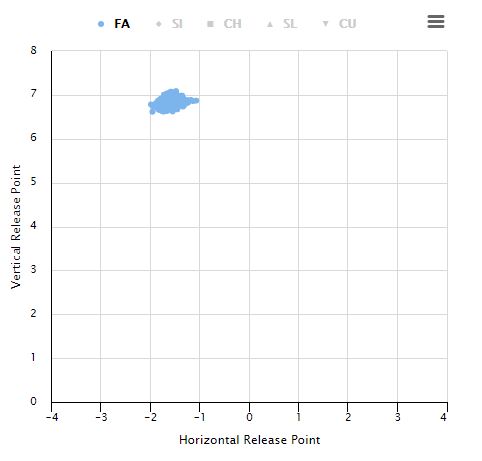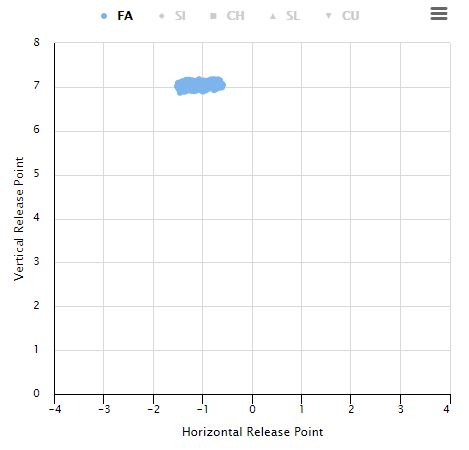For the Toronto Blue Jays, it had already been a busy deadline day. In the dying moments of the trade deadline, they made one last move, acquiring Ross Stripling from the Dodgers:
Stripling has had a rough go of it so far this year. He’s posted his lowest strikeout rate, highest walk rate, and lowest groundball rate, all while allowing his highest rate of home runs per fly ball. That’s about as terrible as it sounds; it’s good for a 7.23 FIP, tied with fellow Blue Jays acquisition Robbie Ray for the worst such mark among pitchers who have thrown at least 30 innings this year.
The Dodgers are flush with pitching depth — Tony Gonsolin’s solid start was likely to force Stripling out of the rotation, and he was more or less a luxury in relief. They’d already tried to trade him once this year, only to have the Angels back out of the deal. Toronto, on the other hand, was starting Hyun-Jin Ryu, three ham sandwiches, and a near-mint condition Juan Guzman rookie card before their recent acquisition spree. The fit is obvious.
Stripling’s sluggish start this year defies easy analysis. The most startling statistic is his sudden inability to strike out right-handed batters. He’s running only a 14.1% strikeout rate against them, as compared to 22.7% before this year. The culprit appears to be two-fold: righties are swinging less at his curveball, previously a go-to out pitch, and missing less often when they swing at his fastball.
That fastball used to be an analytical darling, not quite the pure backspin ideal but not far from it. It’s lost a bit of vertical movement and gained fade, while his curveball has done the opposite: it now falls more but with less glove-side break. It’s a frustrating development for someone who relies on those two pitches mirroring each other.
If that feels to you like a tiny change for such a calamitous fall in results, all I can say is that I agree with you. He’s simply looked a little bit off on the mound this year, right down to an inconsistent release point; he’s released two thirds of his fastballs further to the first-base side of the mound than any fastball he threw in 2019. Here are his 2019 release points:

And 2020:

The Jays are betting that this is just a blip, or that they can fix him if it isn’t. I think that’s a reasonable move, particularly if the two players to be named later they’re surrendering are long shots. Stripling joins Robbie Ray and Taijuan Walker as new starters, displacing either Tanner Roark or Chase Anderson — unless he moves back into the swingman role where he excelled in Los Angeles. Either way, if he returns to anything like his prior form, he’ll be a key contributor for a team on the postseason bubble.
As for the Dodgers, they’ll be fine. They’d been looking to move Stripling for some time, likely to duck below the luxury tax line. With Mookie Betts signing an extension, they’ll probably do that tax line dance again in 2021, which means Stripling was going to be non-tendered or traded given the pipeline of not-yet-arb-eligible pitching coming up behind him. Given his rough recent form, he might not have made their postseason roster, so the decision to get something in return looks reasonable. But if the Jays fix him, or if he simply fixes himself, they might have found a complement to Ryu atop their rotation for years to come. It’s a smart risk by Toronto and a cost-saving move by Los Angeles.

 Jay Jaffe
Jay Jaffe

